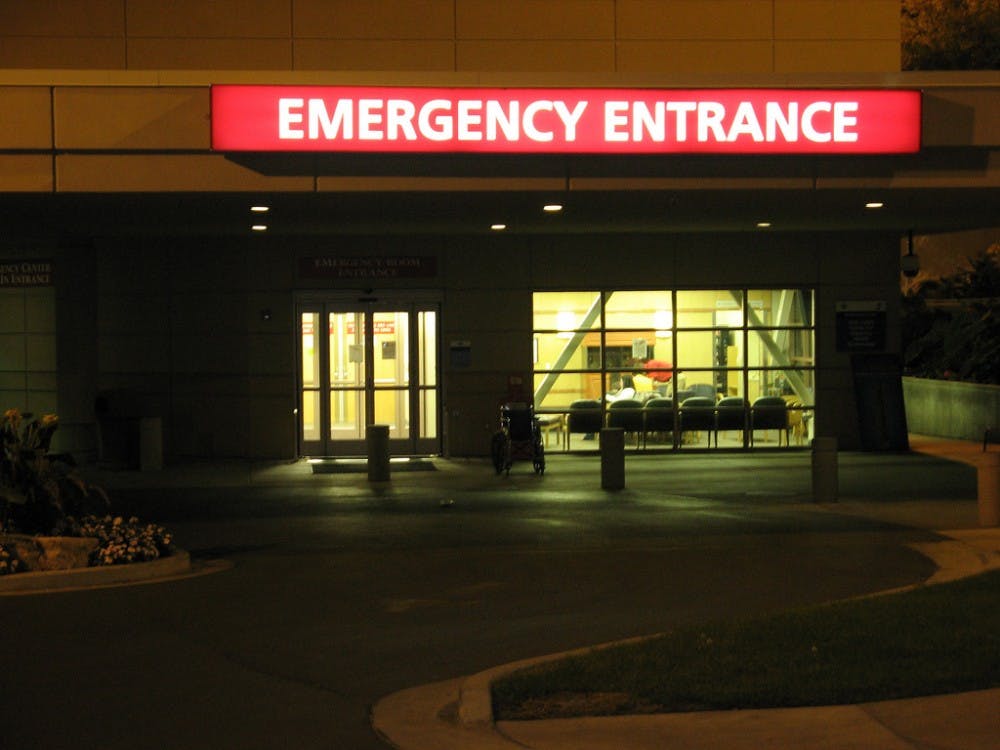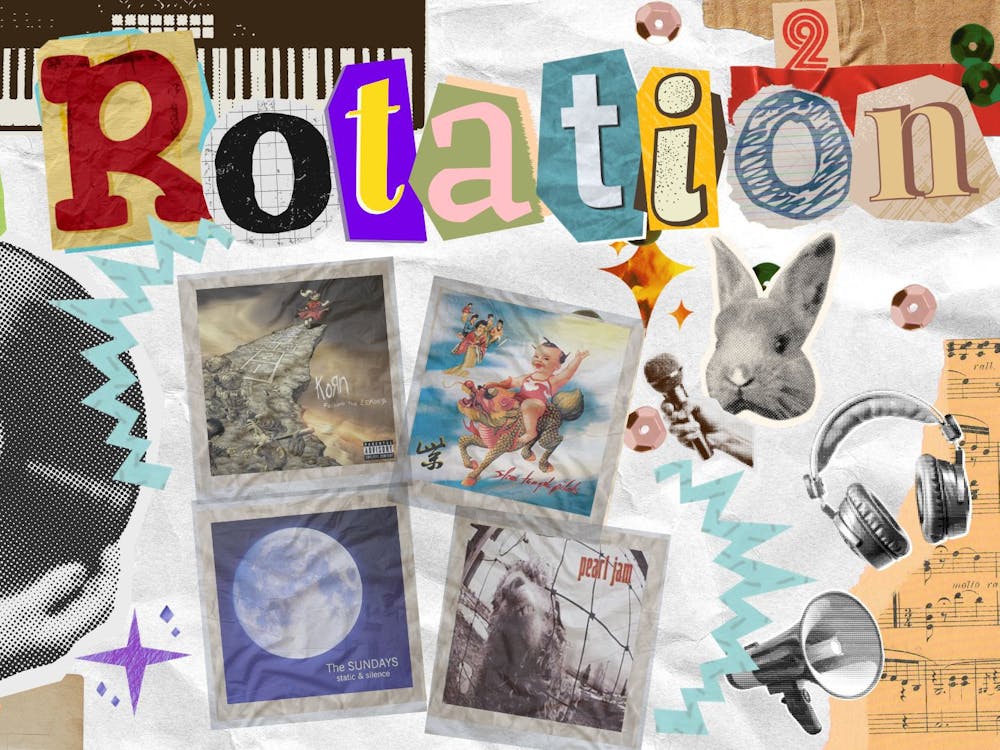By Emma K. Shibley, Staff Writer
The questions were mostly the same -- are you in any pain today? How bad, on a scale of one to 10? And your date of birth?
In the waiting room, my older brother and I looked dressed for a late Sunday afternoon funeral. I was still in the black and white polka dot dress that I'd worn to church that morning, Lee in a black-on-black pinstriped shirt and his fraternity pin. It was September, too hot and humid on top of what felt like a fever to walk. Lee had missed his chapter meeting to drive me there in his champagne-colored Grand Marquis.
A boy with dark hair was in the waiting room, too, wearing a Cavs jersey and talking on the phone about his classes. He's in Psych 111 and 112 this semester, he said. He likes 111, but 112 is just about research. He told the person on the other line he loved and missed them.
The doctor surprised me when he came into the first room. I was sitting cross-legged on the cot, turned away from the curtain, biting my nails and counting the instruments on the wall to quiet the rushing in my ears. I wiped my fingertips on my dress to shake his already outstretched hand.
Under the curtain, I watched a pair of sporty, slip-on clogs plunk by as a gray-haired female nurse crossed from one partitioned room to another. The shoes were sparkly but structurally very plain and looked thin, like an American Girl Doll footwear designer had been hired away by Skechers for more flexible hours and better dental benefits.
I am not used to silver lame nurse shoes. I am used to strong, heavy boots with laces pulled tight all the way up like elegant old ice skates. I am used to long hallway mazes and windowless doors that all look the same shutting when the doctor comes in -- doors that require a knock for entrance, not curtains pulled shut. I am used to seeing humans wearing scrubs on TV, not in real life, as they take my blood pressure and temperature and note my height and weight and current medications on a clipboard.
In a chest-height moving box in my basement back home hangs a United States Air Force uniform, circa 2006 -- dark green, black and brown camouflage in rounded, splotchy shapes. But since the war in Afghanistan, the uniforms have changed to a pixelated map of olive and tan. Airmen's boots are now a greenish-gray, athletic-looking combination of mesh and suede, not the shiny black I grew up with, boots creased at the ball of the foot from walking, boots I watched get untied and gently loosened by big dad hands each night.
Going to the doctor has meant, for most of my life, a half-hour drive north on I-675 to Wright Patterson Air Force Base in Fairborn, Ohio. It meant being sick enough to warrant missing a whole day of school for one appointment.
It meant being sick enough to not mind analyzing the subtextual messages espoused by shows on Disney XD in the pediatrics clinic waiting room while summarizing my family medical history on a form made blurry from being photocopied too many times, writing with one of those pens that has a plastic flower sprouting from one end.
It meant being sick enough to make sure I got a note from the desk to take back to school the next day because I had already incurred the maximum number of tardies.
It meant leaning on my mom's shoulder in the atrium of the WPAFB medical center as the pharmacy got my prescription ready, her cleaning out her purse and us sharing an Einstein Bros. bagel, the automated female voice rhythmically notifying us, "Now serving. A 141. At window number three."
Enjoy what you're reading?
Signup for our newsletter
It meant curling up in the sunny passenger seat on the car ride back, feeling for once allowed to rest until the cease of automotive motion meant we were stopping at the mailbox to grab today's bills, then parked in the garage, home.
The nurse who had initially checked me in at McCullough-Hyde was the one to check me out of the emergency room too. I had my military ID ready to hand him when he asked for my insurance card and had prepped myself to be calm and collected when he would inevitably look at it, pause to connect the dots and ask for my Social Security number.
In neutral tones, Lee and I traded sentences to explain. Lee had gotten to practice the wording, the appropriate conciseness before, but this was my first time ever needing to.
Well, we're dependents, and our dad is our sponsor. Well, he's actually deceased. Thank you. No, he was active duty, not retired, when he died. Yes, put active duty, please. No, it's through his Social, not mine-- thank you.
And then the number, which I had memorized years before learning my own.
When my dad would get home from work -- when I was still little and brave, with hand-me-downs and perpetually skinned knees -- I would run to the front door and leap into a hug, enveloped by strong arms in a uniform whose stiffness had been softened by a day's work providing physical therapy to people who were healing. I would breathe in his Old Spice aftershave. My head would rest on the "SHIBLEY" stitched over his chest, and I would shut my black-brown eyes and be spun.
"Have a better day," the nurse said as he handed me my paperwork, a kind and somewhat sad look on his face. I smiled a sincere but somewhat sad thank you back. Then I tucked my hair behind my ears and stood.
Lee and I walked out of the hospital and across the warm parking lot. I slid into the sunny passenger seat for the drive back to campus, leaned my head against the window and let my eyes blink closed.




